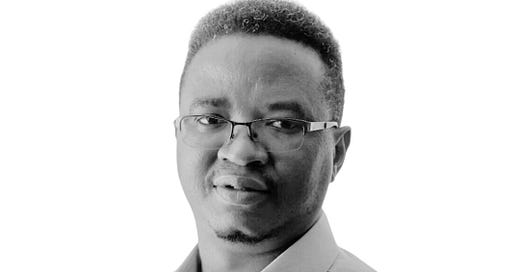Welcome to “Global Witness, Globally Reimagined.” You get a glimpse here of the kind of work that I do both at Church Mission Society and Missio Africanus where I help students of all levels (from unaccredited courses to PhD) explore the theological (and missiological) implications of the rise of World Christianity. In the newsletter, I focus on the subject of global witness in the context of the twenty-first century. Every Thursday, I share a thought that has spoken to me in the week, one or two resources that I trust will be helpful to you, and three exciting quotes about mission to give you something to think about as you go through your day. I pray one of these will energise you.
NB: Please note that I will soon start tailoring most of my content towards paid subscribers. There will still be occasional posts open to everyone, but most will be for paid subscribers. If you appreciate the newsletter and are able to pay for a subscription, please consider doing so.
1. Thought I Can’t Shake Off
There is a phenomenon going on in some parts of Africa at the moment. Many people, dissatisfied with the Christian faith, are converting back to African religion. They are not walking away from religion, per se. They are leaving Christianity to preserve their faith, to return to their ancestral religious heritages that are more robust than Christianity. This is currently common in South Africa and Kenya but is also happening on a smaller scale in many other countries. People converting back to African religion say society was better when before Christianity. Many cite the distant God of the Christians and the cerebral nature of Christianity which often makes it impossible for them to connect with God intimately as they would do in their religious systems. I do not think this is entirely true but it is their reflection on their experience, so we take it at face value. The expression of Christianity they have encountered leaves them with the impression that God is distant and that Christianity is for people interested in matters of the head, not the heart.
Not all Christianity is like this though.
When I speak about it with my friends in theology, I am always shocked that the response is almost always, “They were never really evangelised,” which, I think, means “they were never “evangelicalised enough.” A friend once said, “Give them some reformed evangelical theology and they will see the folly of African religion.” I am afraid it is that very theology that, to a great extent, keeps Christianity as a foreign religion in Africa that is driving them back to African religion.
Could this be the beginning of a significant shift in African Christianity? Could the very gospel that seeks to ground African Christianity bring about its undoing? Some scholars suggest that it should now reach a plateau and start to decline in the coming years. Are we witnessing this transition already? In Europe, we are still grappling with the implications of a post-Christian continent. Will Africa’s experience be different?
2. Resources I am Enjoying
Video: Tope Koleoso: Leading a Multicultural Church
In this seminar presentation at the 2014 Fellowship of Independent Evangelical Churches’ Leaders’ Conference, Tope Koleoso, the lead pastor of Jubilee Church London — a church he helped plant in 1995 — shares valuable insights on leading a multicultural church. Koleoso’s congregation accurately exemplifies his passion and message, a multicultural community of over seventy nationalities across three locations in London. In this conversation, Koleoso premises his thoughts on Ephesians 2 and Acts 17, helping him tease out fascinating ideas on how to transform the church into a multicultural community. Although a decade-old conversation, the insights Koleoso put forward remain germane to the world of mission today, which is increasingly growing in multicultural consciousness, albeit slow to embrace the same in practice.
3. Quotes I am Pondering
We read that the Lord made the earth by his power, wisdom, and understanding (Jer 15:15) … We should, therefore, not rely on human strength to accomplish spiritual missions. — Johana Kariuki Gitau
… the church is intended to be a place where people can find truth (1 Tim 3). Part of this truth necessitates diversity as a reflection of God’s nature, and diversity is a function of justice. — Michele Mahon
The goals of pastoral care and counselling [are] part and parcel of communicating the inner meaning of the gospel through pastoral relationships. — Ndung’u J. B. Ikenye
I pray that you will be faithful to the work God has for you this week.




Harvey, thanks for this discussion of Christianity in Africa. I am surprised by the responses you get from Western missiologists. I sounds like they are saying something like: "They are not modern or Western enough -otherwise they'd know better". In your description of what is happening, I hear a longing for a communal experience of God that goes beyond the head.